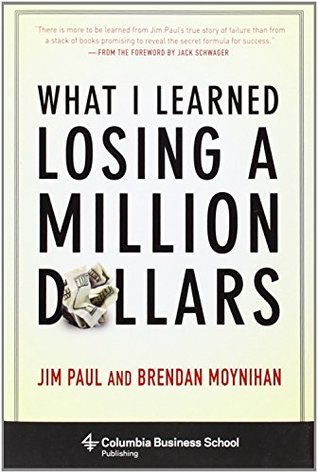More on this book
Community
Kindle Notes & Highlights
The high from “being right” the market and making all that money is unbelievable. It cannot be duplicated with drugs. You are totally invincible. You are impervious to all pain. There’s nothing bad in the world.
This book will not instruct you on the specifics of how to confront your fears or how to “get in touch with your feelings and emotions.” It will not reconcile your ego’s legitimate internal psychological needs with your participation in the markets. I don’t have a battery of tests for you to take to determine your particular psychological profile or your internal conflicts. I don’t have a test to determine if you should be participating in the markets at all. I am not, nor do I pretend to be, a psychologist.
The chapter introduces the five types of participants in the markets: investors, traders, speculators, bettors, and gamblers.
Since psychology deals with your ego, if you can eliminate ego from the decision-making process, you can begin to control the losses caused by psychological factors. The trick to preventing market losses from becoming internal losses is to understand how it happens and then avoid those processes.
1. Denial
2. Anger
3. Bargaining
4. Depression
5. Acceptance
Fifth is people’s tendency to overestimate the frequency of the occurrence of infrequent events and to underestimate that of comparatively frequent ones after observing a series of randomly generated events of different kinds with an interest in the frequency with which each kind of event occurs.
Bhushan liked this
The formula for failure is not lack of knowledge, brains, skill, or hard work, and it’s not lack of luck; it’s personalizing losses, especially if preceded by a string of wins or profits. It’s refusing to acknowledge and accept the reality of a loss when it starts to occur because to do so would reflect negatively on you. APPENDIX JIM ROGERS formed one half (George Soros was the other half) of the phenomenally successful Soros Fund.
Bhushan liked this


